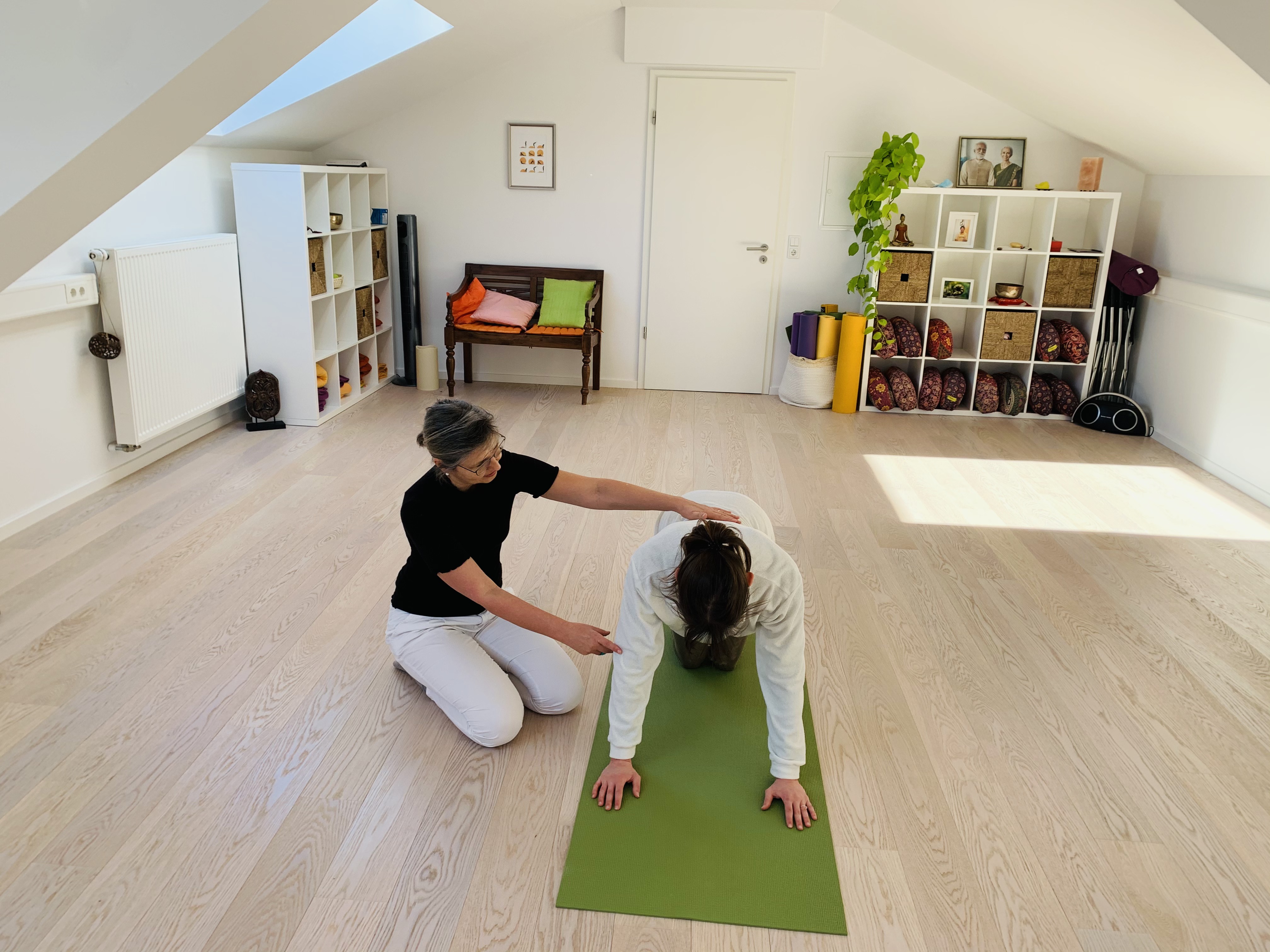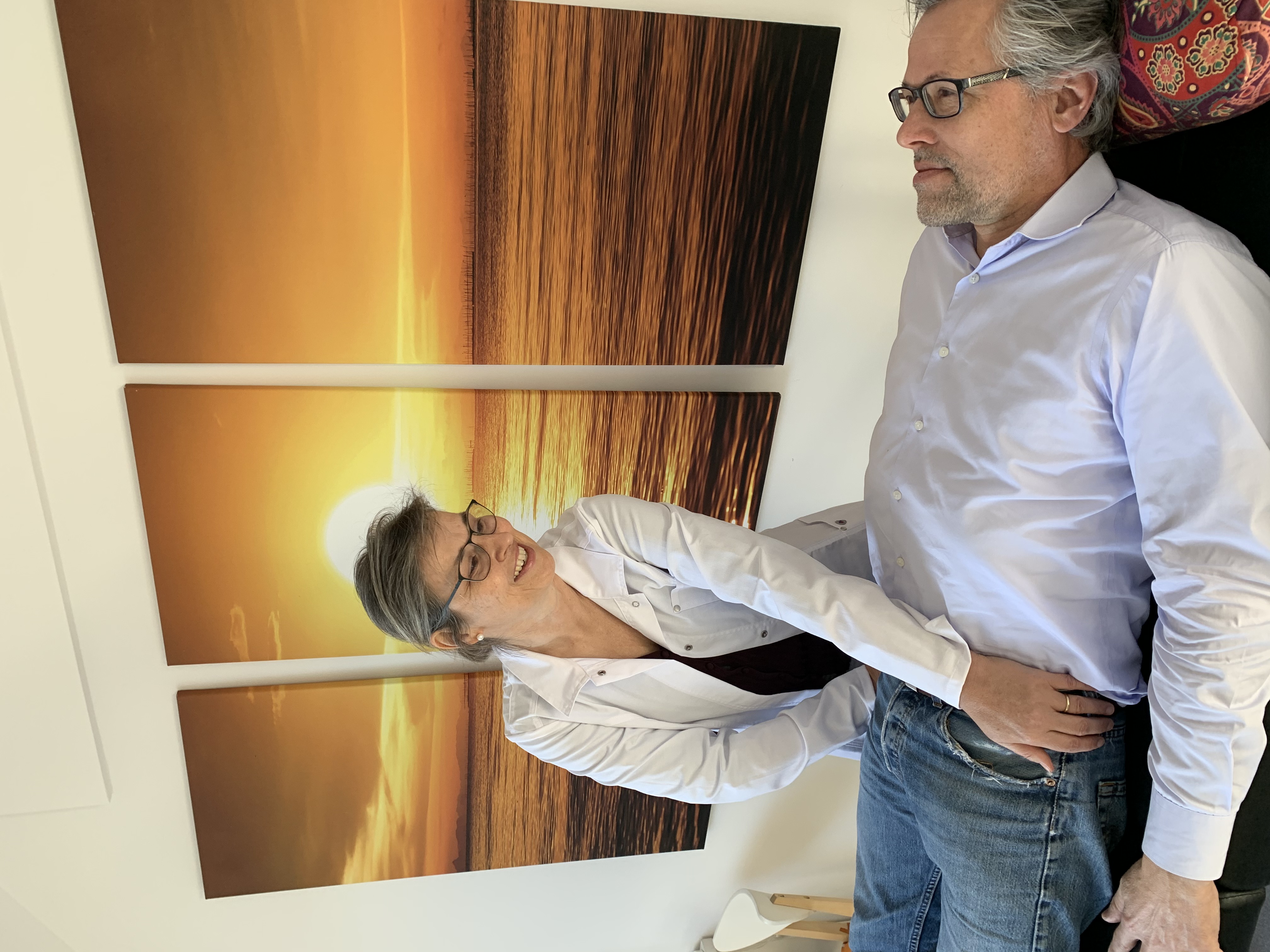Yoga therapy
The difference between Yoga, and Yogatherapy is that Yoga's methods are used specifically to relieve limitations and symptoms caused by disease. These methods include postures, breathing exercises, and relaxation techniques embedded in comprehensive mindfulness and awareness practices.
In recent years, scientific studies have repeatedly demonstrated the effectiveness of yoga for a variety of conditions. This has led, for example, to Hatha Yoga now being supported by German statutory health insurance companies as a means of stress prevention .
As an independent form of therapy, yoga therapy is slowly gaining ground in Germany. The German Society for Yoga Therapy (DeGyt) emphasizes self-efficacy as an important effect for patients on their way to healing. It is encouraged through individually adapted and continuous practice, both under guidance and independently at home. This leads to improved self-awareness and initiates healing processes on all levels (body and mind).

How does yoga therapy work?
First things first:
Anyone, regardless of age or physical condition, with or without yoga experience, can practice therapeutic yoga.
In consultation with the patient, the practice program is always adapted to the patient's symptoms and lifestyle.
My therapeutic work is based on the following principles
- Individualized practice, developed step-by-step and creatively
- Pain-free practice - during and afterwards
- Continuity, i.e. regular independent practice
- Fostering self-confidence and self-competence
- Improving self-awareness and better recognizing one's own needs
Breath-centered practice is a basic prerequisite:
1. The movement is aligned with the individual breath.
2. The focus is on the interplay between one's own breath and the movement.
Other thoughts fade into the background.
3. You get to know your own breath and thus feel its changes more quickly, e.g. when you feel more stressed.
4. You do not move faster or slower than your own breath dictates, thus avoiding possible strain.
The practice can last from 10 minutes up to an hour. It is, however, the regularity of the practice that determines the healing effect not the length of the practice. Starting with a short practice program and integrating it into your daily routine, is beneficial. Sessions get usually longer on their own, because it feels pleasant.
When can yoga therapy help?
Chronic conditions benefit from yoga therapy, as do acute pain and stress situations. Yoga therapy has a preventative and adjuvant effect and supports healing.
My focus is on
Musculoskeletal system
Osteoporosis, back pain syndromes, ISG syndrome, arthrosis
Internal medicine
Diabetes, cardiovascular diseases, respiratory diseases, diseases of the digestive system, headaches
Gynecology
Menstrual problems, menopause
Nerves and psyche
Burn-out syndrome, chronic fatigue syndrome
Foto all @Anja Orttmann-Heuser

